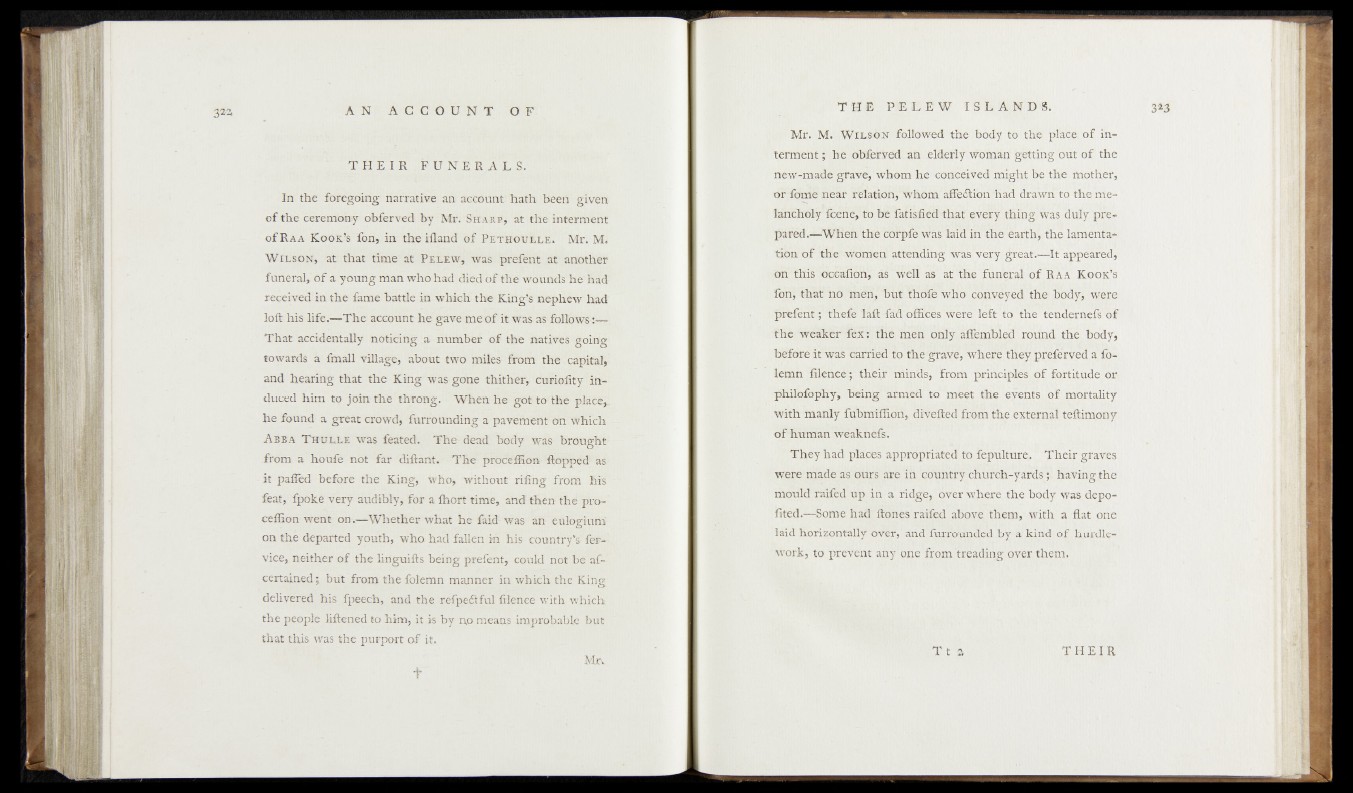
T H E I R F U N E R A L S .
In the foregoing narrative an account hath been given
of the ceremony obferved by Mr. Sharp, at the interment
of Raa Kook’s fon, in the ifland of PetpouEle.. Mr. M.
Wilson, at that time'at Pelew, was prefent at another
funeral,' of a young man who had died of the wound’s he had
received in the fame battle in which the King’s nephew had
loft his life.— The account he gave meof it was as follows i— .
That accidentally noticing a number of the natives going
towards a fmall village, about two miles from the capital,
and hearing that the King was gene thither, curiofity induced
him to join the throng. When he got to the place*,
he found a great crowd, furrounding a pavement oh which
Abba Tn-ULLK was feated. The dead body was brought
from a houfe not far diftant. The proceffion flopped1 as
it paffed before the King, who, without riling from bis
feat, fpoke very audibly, for a fhort time, and then- the pro-'
eeffion went on.—Whether what he faid- was an eulogium
on the departed youth, who had fallen in his country’s-fer-
vice, neither of the lingudfts being prefent, could not be ascertained
• but from the folemn manner in which the King
delivered his fpeech, and the reipedlful ftlenee with which,
the people liftened to him, it is by no means improbable but
that this was the purport of it.
Mrv
f
Mr. M.. Wilson followed the body to the place, of interment
; he obferyed an elderly woman getting out of’the
new-made grave, whom he conceived'might be the mother,
orfonte near relation,“whom affection had drawn to the melancholy
fëéne, to be iatisfled>that every thing 'was duly prepared.—
When "thé hörpfe was laid in the earthy the lamenta-
"öbn of 'the'women attending was'very greatf—it appeared,
on this Occaftoh,' aé well as” at the furiteral of RAA Kook’s
fon, that no méfl, but fbofe who conveyed! the body* were
prefent; thefé laft faa offices'wèreTefkto 'the tendërnelsbf
the weaker' fex: the men only aflembled round the body,
before it was carried to fhe^rave, where they preierveef a folemn
fïlericê‘;'thfeir niin'ds, from principles of fortitude or
philofophy, being armed to meet the eyehts of mortality
with manly fubmiflion, dif efted from the external teftimony
of human wèaküéfs.
They had places appropriated to fepulture. Their graves
were made as oürs are in country church-yards^ having the
mould railed up in a ridge, over where the body was depo-
fited.—Some had ftones raifed above, them, with a flat one
laid horizontally over, arid furrounded by a kind of hurdle-
work, to prevent any one from treading over them.
T t 2 T H E I R